Breast Reconstruction in Lithuania
Search and Compare the Best Clinics and Doctors at the Lowest Prices for Breast Reconstruction in Lithuania

Find the best clinics for Breast Reconstruction in Lithuania
With Medijump you can browse 3 facilities offering Breast Reconstruction procedures in Lithuania. The cheapest price available is $6,348 in Vilnius. And for the cheapest price globally, prices start from $477 in India.
Breast Reconstruction in Vilnius
Price: $ 6,348
India offers the best prices Worldwide
Price: $ 477
From 3 verified reviews
Lukas Vaišys, 11 March 2020
I recommend, very good professionals.
From 42 verified reviews
Ieva Žentelytė, 15 September 2020
Thanks to surgeon A. Sklepavičius for taking care of his patients, professionalism and the fact that He heals people, discovers diseases. I was lucky to entrust my problems to this Doctor in capital letters. Happy patients and clinic with a doctor like A. Sklepavičius.
From 10 verified reviews
AGNĖ KULBYTĖ-PETRAUSKIENĖ, 23 December 2019
I have visited many times, doctor dermatologist Justė Kantauskaitė - a great specialist, left a wonderful impression both as a person and as a specialist in her field. Next time I would pick her again. My daughter also really enjoyed it!
- Home
- Lithuania
Compare Before & After Photos of _procedure_photos.phpBreast Reconstruction
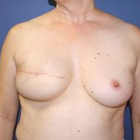
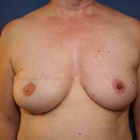
Front view
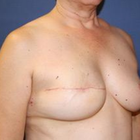
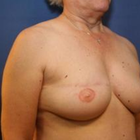
Half-side view
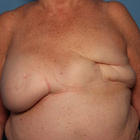
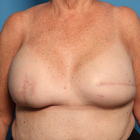
Front view
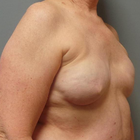
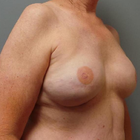
Half-side view
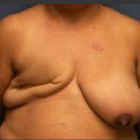
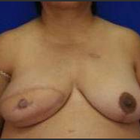
Front view
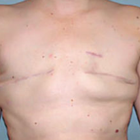
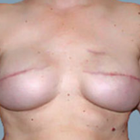
Front view
WHY US?
At Medijump, we're making medical easy. You can search, compare, discuss, and book your medical all in one place. We open the door to the best medical providers worldwide, saving you time and energy along the way, and it's all for FREE, no hidden fees, and no price markups guaranteed. So what are you waiting for?

Free

Best Price

Widest Selection

Risk-Free
What you need to know about Breast Reconstruction in Lithuania
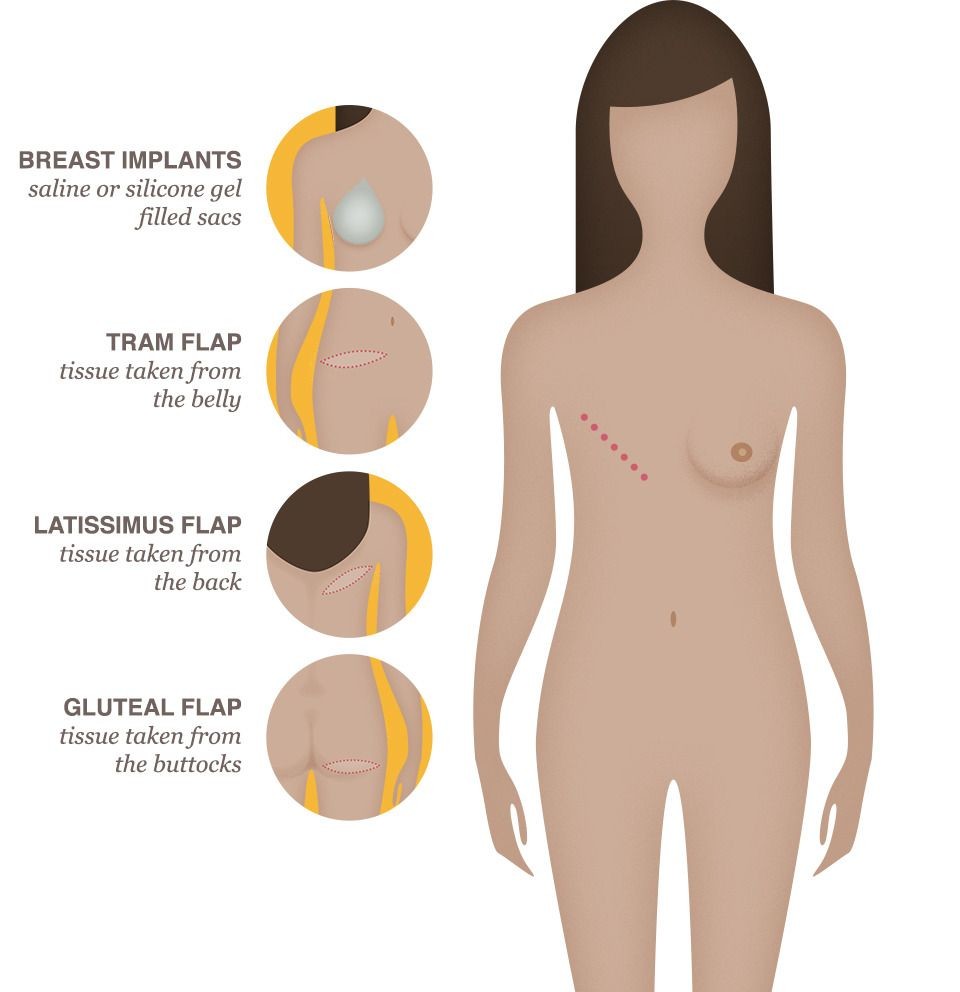
Breast reconstruction is a significant surgery undertaken to rejuvenate the physical form of a woman's chest after losing one or both breasts to cancer or another disease. In Lithuania, medical centres are well-equipped with top-tier talent in plastic surgery to facilitate this intricate procedure. Every woman's journey is different, and her treatment plan is personalized, considering her unique circumstances and needs.
It's heartening to know that breast cancer treatments like chemotherapy or radiation therapy aren't impeded by reconstruction. Moreover, this surgery doesn't spike the risk of cancer coming back. Undeniably, breast reconstruction is a major surgery with inherent risks, including chances of infection, complications with wound healing, and potential dilemmas related to implants.
What is the cost of Breast Reconstruction in Lithuania?
Undergoing surgery like Breast Reconstruction brings along a financial commitment. The expense varies extensively, depending on many factors like the complexity of the procedure, the medical professional performing the surgery, the hospital's facility, and the region, amongst others. Generally, the cost might range between $15,000 to $50,000, including multiple surgeries or intricate techniques within this estimate.
Thankfully, in many cases, insurance plans cover such surgical procedures, especially given mandates like the Women's Health and Cancer Rights Act of 1998 in the U.S. Still, out-of-pocket expenses associated with co-payment or deductibles can add up. It's recommended to navigate these aspects with your insurance provider and your chosen healthcare facility in Lithuania.
What does a Breast Reconstruction Procedure Involve?
Breast reconstruction generally happens in stages, starting with the most complex first, which may either occur at the same time as the mastectomy or later, based on the individual’s specific health conditions or treatment plan.
Two main techniques are employed in breast reconstruction. One is the use of an implant, saline, or silicone to recreate the breast shape. Two, autologous or flap reconstruction where tissue from the patient’s body like the abdomen or thigh is relocated to recreate the breast shape. The method selected is dependent on individual factors like the patient’s health, personal choice, cancer type, and stage.
After the primary surgery and post an adequate healing period, the surgeon performs a second procedure to recreate the nipple and areola. Later, to give it a natural look, the nipple-areola complex is tattooed. Remember that although it is a common procedure, complications might arise involving reaction to anaesthesia, bleeding, infection, poor healing or the need for further interventions.
How Long Should I Stay in Lithuania for a Breast Reconstruction Procedure?
Post-breast reconstruction surgery, patients typically stay in the hospital for two to five days. However, if the reconstruction was done immediately after the mastectomy, the stay could extend from three to six days.
Overall, a patient should expect to remain in Lithuania for approximately two weeks post-surgery. This allows enough time for necessary follow-ups and to address any complications, if they arise. As with any major surgical procedure, do not hasten the healing process.
What's the Recovery Time for Breast Reconstruction Procedures in Lithuania?
The recovery timeframe for breast reconstruction procedures in Lithuania varies from patient to patient. Generally, for implant-based procedures, patients may take about four to six weeks to recuperate before they return to normal routines. For more complex autologous techniques, particularly those using abdominal tissue, patients might require six to eight weeks for recovery.
Recovering patients need to temper their activities during this period. Avoid lifting heavy objects and defer strenuous exercise until your physician gives a clear signal. Medical assistance should be promptly sought if any discomforting symptoms like chronic pain, redness or swelling surface.
What's the Success Rate of Breast Reconstruction Procedures in Lithuania?
Medical success cannot just be measured in terms of complication-free postoperative progress or longevity of implants used in breast reconstruction. Patient satisfaction with their surgery, their psychological well-being following the operation, their perception of body image, and their quality of life post-surgery are equally important factors to consider. Studies indicate that between 85% to 90% of women who have undergone breast reconstruction are satisfied with the long-term results.
In Lithuania, dedicated hospitals and healthcare facilities strive to offer high-quality treatment, ensuring the best possible surgical outcomes using progressive technology and experienced professionals. Still, everyone's response to surgery varies, and outcomes depend on factors such as overall health, age, body type, and compliance with surgical advice.
Are there Alternatives to Breast Reconstruction Procedures in Lithuania?
Indeed, there are alternatives to breast reconstruction in Lithuania. The journey of every woman is unique and how she chooses to deal with the loss of a breast, or both, is a highly personal decision. Alternatives include:
- Breast Prostheses or Forms: They are silicone forms that imitate the appearance and feel of natural breast tissue. They come in diverse sizes, shapes and colours to closely match the woman's skin tone.
- Flat Closure: In this method, the surgeons sew up the chest wound smoothly, without constructing a breast mound. This option appeals to women who choose not to have more surgeries or body implants.
- Opting not to undergo reconstruction at all, also termed as "going flat: This method exhibits the woman's choice to live comfortably with her new body shape without artificial substitutes or further surgeries. It is a fully personal decision deserving respect and support.
Each of these options has pros and cons, and the choice depends on the woman’s personal preference, health status, lifestyle, and perception of her body. Regardless of the choice, it’s important to regularly monitor breast health and engage in practices that promote overall wellness.
What Should You Expect Before and After the Breast Reconstruction Procedure?
Before the surgery, comprehensive discussions with the surgeon will take place to understand treatment objectives, outcomes, and possible complications. Preoperative tests, lifestyle modifications, and nutritional advice may form a part of the preparatory process.
Postoperative care is equally important: discomfort, swelling, and bruising are normal and subside over time. Pain management strategies will be provided to help you manage discomfort effectively. Your surgeon will provide personalised guidance on caring for your surgical site, usage of medications, and physical activities.
What sort of Aftercare is Required for Breast Reconstruction Procedures in Lithuania?
The following points should be considered post-operation:
- Follow the instructions given by your doctor and take your medicines as and when prescribed.
- Consult a nutritionist for a diet plan. A healthy diet helps you recover faster.
- Do not wear a padded or underwire bra until allowed by your doctor.
- Use surgical bras in the early few days after the surgery.
- Avoid excessive unnecessary movement of your breasts.
- Do not lift heavy objects and children - it could stretch on your stitches.
- Change your bandage whenever it gets dirty. Germs can cause infection.
- Do not take a bath when the bandages are still intact. A wet bandage can also be the cause of infection.
- Abstain from sexual activity for at least 6 weeks.
- Take rest - give yourself time to recover.
How Do I Prevent Cancer from Recurring?
Preventing cancer recurrence largely revolves around a balanced, healthy lifestyle coupled with regular medical check-ups. Regular exercise, maintaining a healthy weight, and eating nutritiously can contribute to cancer prevention. Smoke cessation and limiting exposure to secondhand smoke are crucial for both prevention and postoperative recovery.
Regular breast self-examinations, as well as mammograms and follow-up visits, are critical for early detection of any recurrence. Stress management techniques like yoga, meditation, and spending time in nature can also play an essential role in overall health.
Your medical team in Lithuania is there to support you, offering advice tailored to your individual health status and medical history. Remember, proactive health checks are key to maintaining overall health and preventing the recurrence of diseases like cancer.
What is the ideal time to have Breast Reconstruction surgery after a Mastectomy in Lithuania?
The decision regarding when to have Breast Reconstruction following a Mastectomy in Lithuania is largely based on the individual's health status, treatment plan, personal preferences, and discussions with the oncology team. Breast reconstruction can be done at the time of mastectomy (immediate reconstruction) or at a later date (delayed reconstruction). Immediate reconstruction might offer psychological benefits and less overall surgery since both procedures are done together. Yet, if additional treatments such as radiation therapy are required post-mastectomy, opting for delayed reconstruction could be advisable to avoid risks posed by radiation to the new construct.
Remember that deciding on the timing of breast reconstruction is a personal choice and should be made in consultation with your healthcare providers. They can provide specific guidance based on your health condition and treatment plan.
How Will Breast Reconstruction in Lithuania Impact My Routine Mammograms and Breast Cancer Detection?
Breast reconstruction surgery may impact the way routine breast cancer screenings are conducted. After a mastectomy with or without reconstruction, women usually don't need routine screening mammograms on the treated side since all breast tissue has been removed. However, they would need routine mammograms for the untreated breasts.
If you've had reconstruction using your own body tissue, your surgeon or oncologist will guide you on whether or not you'll require mammograms on the reconstructed breast. Remember, mammograms can still be performed on reconstructed breasts, and self-breast exams should be a regular part of your health routine.
Whilst the information presented here has been accurately sourced and verified by a medical professional for its accuracy, it is still advised to consult with your doctor before pursuing a medical treatment at one of the listed medical providers
No Time?
Tell us what you're looking for and we'll reachout to the top clinics all at once
Enquire Now

Popular Procedures in Lithuania
Prices Start From $497

Prices Start From $208

Prices Start From $834

Prices Start From $500

Prices Start From $93

Prices Start From $85

Recommended Medical Centers in Lithuania for Breast Reconstruction

- Interpreter services
- Translation service
- Religious facilities
- Medical records transfer
- Medical travel insurance
- Health insurance coordination
- TV in the room
- Safe in the room
- Phone in the room
- Private rooms for patients available

- Interpreter services
- Translation service
- Religious facilities
- Medical records transfer
- Medical travel insurance
- Health insurance coordination
- TV in the room
- Safe in the room
- Phone in the room
- Private rooms for patients available

- Interpreter services
- Translation service
- Religious facilities
- Medical records transfer
- Medical travel insurance
- Health insurance coordination
- TV in the room
- Safe in the room
- Phone in the room
- Private rooms for patients available

- Interpreter services
- Translation service
- Religious facilities
- Medical records transfer
- Medical travel insurance
- Health insurance coordination
- TV in the room
- Safe in the room
- Phone in the room
- Private rooms for patients available

- Interpreter services
- Translation service
- Religious facilities
- Medical records transfer
- Medical travel insurance
- Health insurance coordination
- TV in the room
- Safe in the room
- Phone in the room
- Private rooms for patients available

- Interpreter services
- Translation service
- Religious facilities
- Medical records transfer
- Medical travel insurance
- Health insurance coordination
- TV in the room
- Safe in the room
- Phone in the room
- Private rooms for patients available

- Interpreter services
- Translation service
- Religious facilities
- Medical records transfer
- Medical travel insurance
- Health insurance coordination
- TV in the room
- Safe in the room
- Phone in the room
- Private rooms for patients available
Breast Reconstruction in and around Lithuania
About Lithuania
Lithuania is an Eastern European country and is the largest and most populous of the three Baltic States. The country has a population of 3 million people, capital and largest city is Vilnius. There are only 3 Hospitals in Lithuania that are JCI accredited and all 3 can be found at the capital.
Lithuania welcomes an ever-increasing number of medical tourists each year, many of which travel for Breast Reconstruction procedures. The biggest attraction of Lithuania has to be the cost. Once you are there it is very affordable to eat, drink and get around and the prices from private clinics for medical treatment are extremely competitive. Come from within Europe on a low-cost airline and you will probably pay for your treatment and your holiday for less than your procedure would have cost at home.
Popular Parts of Lithuania
Although Lithuania is one of the lesser known countries of Europe, the country is actually a beautiful destination. Lithuania is home to incredible castles, lakes, forests, and landscapes.
- Vilnius: The capital of Lithuania is a city of churches. It is a dreamy city especially under the golden glow of summer sun. The city is often referred to as one of the cheapest city breaks in Europe. Trendy bars, hills, beautiful architecture, and fascinating history all makes this city an amazing destination. Hot-air balloons above Vilnius are also an impressive sight.
- Kaunas is the second city in Lithuania and is probably the coldest city in the country. Most tourists’ attractions in the city are within walking distance, making it a pleasant city to explore. The street in Old Town is packed with interesting architecture and hidden attractions.
- Druskininkai is filled with health spa amenities. Tourists will find countless natural attractions such as mineral water and curing mud. The city offers many outdoor and leisure activities such as river canoeing, cycling, adventure park with rope obstacles, and ski.
- Nida is a peaceful fishing village. It is a popular destination for tourists looking for some downtime, it has beautiful panoramic views. It is also home to the highest moving sand dunes in Europe. The Dead Dunes is probably the most famous spot in Nida.
Weather and Climate in Lithuania
Lithuania is at its best in summer when the days are warm and the Baltic Sea is swimmable. The country is swarming with tourists during this season. Summer starts from June until August; the average temperature is around 20 °C during the day and 14 °C during the night.
Spring arrives late, usually starts in April and finishes in May. Spring makes the country look even more beautiful with blossoming flowers and cherry trees. The temperature is usually cool.
Autumn has many sunny days and adds more color to the country. Autumn starts in September and lasts for two months. The nights in autumn are chilly, and the temperature usually drops to 0.1 °C in late November.
Winter is especially cold with an average temperature of around -6.6 to -2.8 °C. Some winters can be even colder with the average temperature dropping as low as -20 °C.
Getting Around in Lithuania
Vilnius International Airport is the largest airport in Lithuania. It connects the country with European cities. The airport is the hub for air Baltic and Get Jet Airlines. Budget airlines such as Ryanair and Wizz Air also operate flights from this airport. Other international airports are Kaunas International Airport, Palanga International Airport, and Šiauliai International Airport. The airports in Lithuania do not serve domestic flights.
Vilnius airport taxis are available and can be found in front of the arrivals terminal. The taxis are comfortable and affordable. All taxis accept payment by cash or credit card, a journey to the city center should cost around 10 EUR to 18 EUR. The city bus is a more cost-effective option to travel to Vilnius. A single ticket costs 1 EUR and can be purchased on the bus.
Getting around in Lithuania by car is the best way if you wish to visit many destinations. Lithuanian roads are among the best in Eastern Europe. The country has four-lane highways connecting Vilnius, Kaunas, Klaipeda, Panevėžys, and Palanga.
Intercity buses dominate the system of Lithuanian public transportation. Buses link all major cities and smaller towns. Buses between big cities are very frequent and usually leave every 15 minutes. Bus tickets can be purchased in the bus station or directly from the bus driver. Trains in Lithuania are good value but rather slow. Riding a bicycle is a nice way to get around inside the cities. Most roads are kept in good condition. Bike hire is available across all major cities and several small villages.
Tourist Visas in Lithuania
Citizens of the European Union, the United States, Canada, Australia, and Britain are granted visa-free entry to Lithuania and may stay for up to 90 days. Other foreign nationals must apply and obtain a visa before entering Lithuania. It is advisable to contact the local embassy to check visa requirements for Lithuania.
Lithuania is part of the Schengen Area, those who already have a Schengen visa do not have to apply for a new visa to enter Lithuania. A passport valid for at least three months beyond the length of stay is required by all visitors.
Additional Information
- Local Currency: The local currency is the euro. Lithuania adopted the euro in 2015. 1 USD is equivalent to 0.88 EUR.
- Money & Payments: ATMs are available in cities and towns, even in small villages. Most banks will exchange your money, but the easiest way is to withdraw cash from an ATM. Most restaurants and hotels accept credit cards (mostly Visa, MasterCard, and American Express). Always make sure to carry cash for small purchases such as museums and markets. Tourists can tip 10% in restaurants, always tip with cash even if you’re paying by credit or debit card. Taxi drivers do not expect a tip, but it is common to add a couple of euros.
- Local Language: Lithuanian is the official language. English is widely spoken by younger generations. The older generations usually only have very basic English skills. Most people know Russian or at least very basic Russian. Polish is also understood in certain areas. German is also spoken in Palanga, Neringa, and other major cities.
- Local Culture and Religion: The predominant religion in Lithuania is Christianity; with around 77% of the population is Catholic. There are also small groups of Jews, Muslims, as well as other faiths.
- Public Holidays: As a Christian country, Lithuania celebrates Christian religious holidays such as Easter, Christmas Eve and Christmas. Lithuania has little traditions to celebrate its national patriotic holidays. The country hosts many annual and unique festivals all-year round. Galapagai Rock Music Festival in July, Palanga Smelt Festival in February, Vilnius Festival in June, Trakai Middle Age Festival in June, and Vilnius Film Festival in late March to early April.
Popular Searches
- Plastic Surgery in Thailand
- Dental Implants in Thailand
- Hair Transplant in Thailand
- Breast Augmentation Thailand
- Gastric Sleeve in Thailand
- Gender Reassignment Surgery in Thailand
- Laser Hair Removal in Bangkok
- Botox in Bangkok
- Dermatology in Bangkok
- Breast Augmentation in Bangkok
- Coolsculpting in Bangkok
- Veneers in Turkey
- Hair Transplant in Turkey
- Rhinoplasty in Turkey
- Stem Cell Therapy in Mexico
- Rhinoplasty in Mexico
- Liposuction in Mexico
- Coolsculpting in Tijuana
- Rhinoplasty in Korea
- Scar Removal in Korea
- Gastric Sleeve in Turkey
- Bone Marrow Transplant in India
- Invisalign in Malaysia
- Plastic Surgery in the Dominican Republic
- Tummy Tuck in the Dominican Republic
- Plastic and Cosmetic Surgery in Poland
- Rhinoplasty in Poland
- Hair Implant in Poland
- Dental Implants in Poland
- IVF in Turkey


